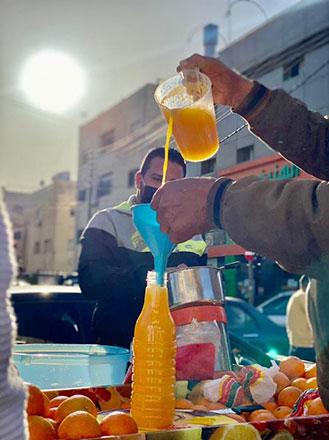- Local News
- Friday-2021-04-30 | 01:22 pm

Nayrouz News Agency :
The Health Surveillance and the Unauthorised Sale Control Departments at the Greater Amman Municipality (GAM) on Wednesday disposed of 6,155 litres of Ramadan beverages displayed on streets for sale, according to an official.
In remarks to The Jordan Times on Thursday, GAM Spokesperson Naser Rahamneh said that "GAM officials in cooperation with other relevant authorities regularly inspect roadside stalls selling fresh juices and syrup-based drinks”.
Rahamneh urged the public to refrain from buying Ramadan go-to drinks from street vendors, as they are "unsafe”, adding that many street vendors tend to work under unsanitary conditions and do not follow the adequate hygienic protocols.
Sara Ali, 24, told The Jordan Times on Thursday that she would never buy her drinks from street vendors, because it may cause serious illness among consumers whether they bought fresh or flavoured juices made of artificial colours.
Just like every Ramadan, Muslims like having drinks such as Kharoub (locust bean drink), Tamer Hindi (tamarind fruit drink), and Jallab (date, grape molasses and rose water) for Iftar (fast-breaking meal at sunset), but it is better to buy them from grocery stores and hypermarkets, she said.
"Juices sold on the streets are prepared in places with poor sanitation, the bottles in which the beverages are poured in could also be contaminated,” Ali said.
Meanwhile, Subhi Salim, who sells fresh orange juice, told The Jordan Times on Thursday that the reason why he started selling juices during the fasting month, was to earn more money so that he could support his family.
"The oranges I use are all washed. I use my gloves and I follow all of the food safety guidelines,” Salim said.









